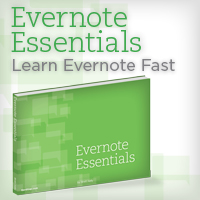As the author of a reasonably popular eBook, quite a few people have asked me if I had any plans on rebuilding my eBook using Apple’s new iBooks Author software. The answer is “absolutely not” and I’m writing this to explain why.
Things to Bear in Mind as You Read This
- I am not an attorney.
- I am writing this based on what I believe to be a coherent understanding of the iBooks Author application End User License Agreement (EULA).
- I am the author of an eBook dealing with a software application/service that is very actively developed.
- I am not saying that the following reasoning applies to everybody in the whole world. It doesn’t.
It’s Not About the Software
Let’s get one thing out of the way; I don’t have any opinion on Apple’s iBooks Author software. I’ve never used it, nor do I have it installed. As most of you know, I’m a big proponent of Apple’s products and philosophy, so I’m sure that—like most things Apple makes–it’s very nicely built and is quite capable of performing the work it was designed to do.
But…
Platform Restrictions
Currently, I sell Evernote Essentials (only) as a PDF. This, I decided, would put me in front of the largest potential audience — since virtually every device that can power on today can also render a PDF. That would all change if I developed the eBook using iBooks Author because, as stated in the EULA, I’d only be able to sell it in the iBookstore. I’d no longer be able to sell it on my own website (which I do now), nor would I have the option of selling it on any other competing platform’s eBook store (like Amazon). This has incredibly far-reaching implications that I don’t think most people are considering. Right now, anybody with a computer/tablet/smartphone can buy and read my eBook without much hassle. Moving to the iBookstore would restrict my potential audience to people who own iOS devices and that have the iBooks application installed (don’t forget, it’s not installed by default).
I realize that iOS devices are wildly successful, but my market extends way beyond iPad owners who know what iBooks is and who buy reading content from Apple.
But, let’s say there was a way for me to circumvent this little restriction—say, but generating one version for the iBookstore and another for everywhere else—would that be enough to get me to consider it?
No, ma’am.
For the first reason, let’s talk about the pricing.
Pricing Restrictions
If I want to sell Evernote Essentials in iBooks (after producing it using iBooks Author), I’d be forced to:
- Set the price at no more than $14.99 (the maximum price allowed by Apple and substantially lower than the current price)
- Give 30% of each sale to Apple.
As I mentioned previously, I don’t have much trouble selling the eBook at its current price and, except for a 3% processing fee imposed by Paypal for each transaction, I keep the entire purchase price.
I could, theoretically, lower the price of Evernote Essentials to the upper bound set by Apple, but then I’d be effectively forced to lower the price everywhere else I sold it (as described in the previous section)…
You may find yourself asking your screen, “could you not potentially reach a much larger audience if you sold via the iBookstore? Sir!”
Maybe, sure.
“Could you not also make up in volume what you would lose in individual unit price if you moved to the iBookstore?”
Again, possibly. Hell, probably.
But it’s not just about the money, big fella.
Let’s talk about those “far-reaching implications” I mentioned before.
The Big Reasons
The two biggest reasons I don’t sell Evernote Essentials on any of the major eBook retailer sites (iBooks, Amazon’s Kindle store, etc.) are:
- I would have no clue who purchased my eBook or how they found it.
- I would have no way of contacting customers who didn’t like it, and, in most cases, I’d be subject to [the retailer]’s commenting/review system.
I can’t describe how important these two things are to me. If you’re an eBook author, they should be incredibly important to you, too.
Like I said in that other post I wrote about eBook writing/selling, I capture an email address and name for each person who buys from me because, a) I want to keep in contact with them and try to add more value than just the eBook itself and b) having a list of names and email addresses of people who buy your stuff is extremely valuable. Sounds like Internet douchebaggery or whatever, but this is a business, after all.
If you’re even peripherally paying attention to the Apple developer community, a common developer complaint is that they can’t contact people who leave negative reviews, nor can they (normally) have the reviews taken down, even if they’re inaccurate and the person leaving the review is just an idiot.
No, the developer simply has to sit by and accept the fact that a vocal subset of their customer base exerts an inappropriate amount of control over the sales and popularity of their product.
Thanks, but no thanks.
Hear Me Out
Let me restate that I’m not just generally crapping on iBooks, the iBooks Author application or anything else. I’m an eBook author that’s sold a few copies and is pretty happy with how things have gone. If Apple’s wares seem like just the thing for your next eBook project, then I’d suggest you seriously consider employing them.
Just make sure you think through all of the possible ramifications of such a decision. That’s all I’m saying.
